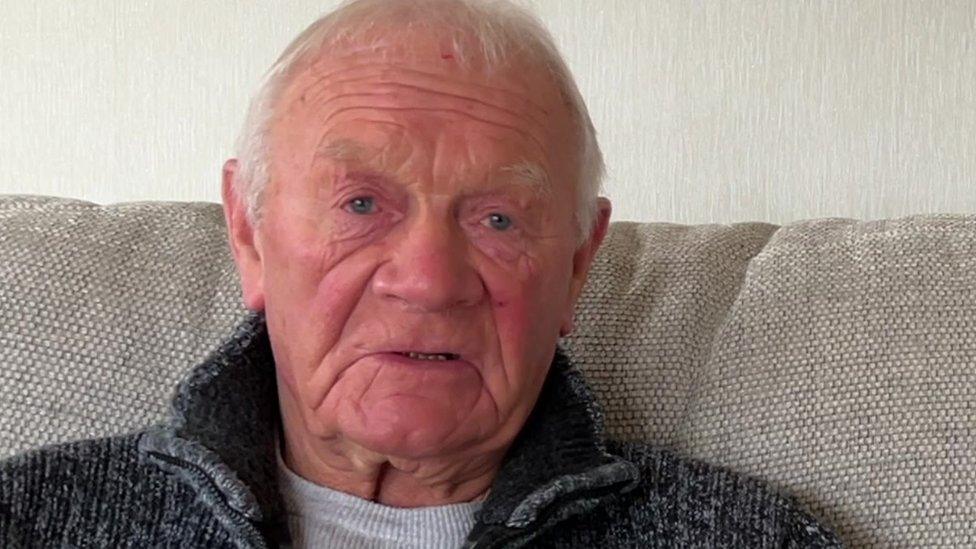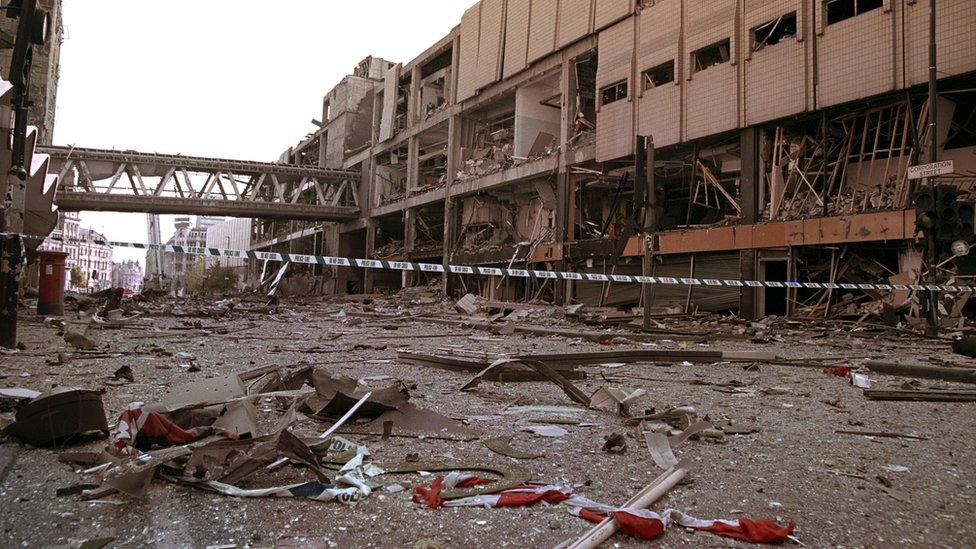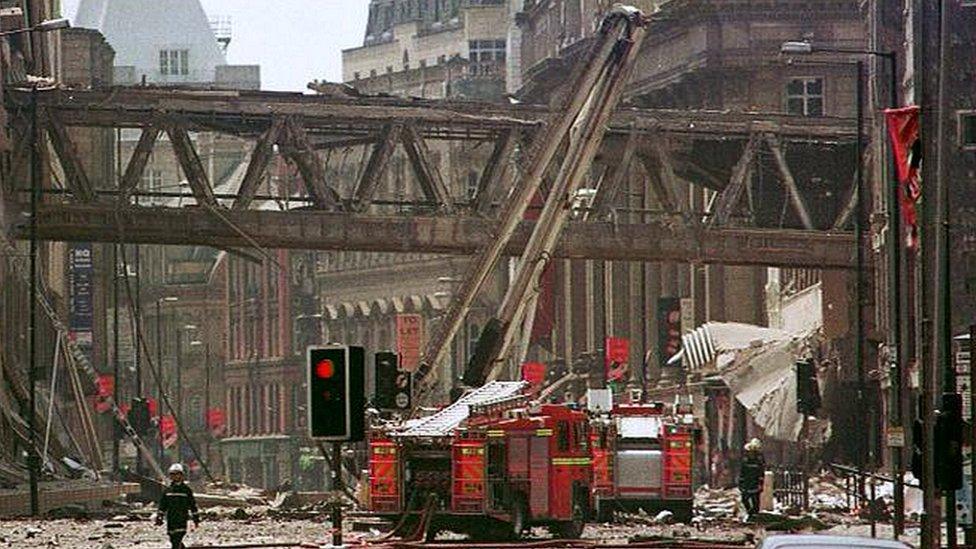Manchester 1996 IRA bomb survivor 'determined to get closure'
- Published

Barry Laycock suffered life-changing injuries in the 1996 IRA bombing of Manchester
A survivor of the IRA attack on Manchester has said he is determined to "get closure" for hundreds of victims after being told he can continue to sue former Sinn Féin president Gerry Adams.
Barry Laycock was blown off his feet when a bomb exploded near Manchester Arndale shopping centre in June 1996.
More than 200 were injured in what was described as the most powerful bomb to go off in Britain since World War Two.
It left the former British Rail worker with severe back and leg injuries.
He told BBC North West Tonight that what happened on 15 June 1996 "completely changed my life" and he was forced into early retirement as a result.
"I'm still feeling the physical and psychological effects," he said.
"I am still on medication and have to wear morphine patches."
He said he also believes the long-term impact of the attack contributed to his wife Christine's death in 2010.
'Not about money'
Nobody has ever been charged in connection with the bombing, but Mr Laycock, along with two other men injured by Irish Republican Army bombings in London in the 1970s and 1990s, wants to bring claims against Mr Adams for "vindicatory purposes".
They have alleged Mr Adams was an IRA leader and therefore responsible for its members' actions.
Mr Adams has consistently denied being a member of the IRA.
Mr Laycock, who lives in West Yorkshire, has been told by the High Court that he can take legal action against the former Sinn Féin leader, but only as an individual, not as an IRA representative.
The judge also confirmed that the victims would have legal costs protection for the civil action, which is seeking symbolic damages of £1.
Mr Laycock said it was "not about money".
"We want it to be put to bed, once and for all," he said.

More than 200 were injured in what was described as the most powerful bomb to go off in Britain since World War Two
John Clark and Jonathan Ganesh, who were respectively victims of the 1973 Old Bailey bombing and the 1996 London Docklands attack, have joined with Mr Laycock to take the action.
They have alleged Mr Adams "acted together with others in furtherance of a common design to bomb the British mainland" and was "directly responsible" in various roles within the IRA for decisions made to place devices in 1973 and 1996.
Mr Adams, who has denied the allegations, asked Mr Justice Soole to dismiss the case against him at a hearing in November.
His barrister, Richard Hermer KC, argued that the IRA was "incapable in law of being sued" and that the "representative" aspects of claims should be struck out.
Mr Laycock said all he wanted was "justice", adding that "not a day goes by" that he does not think about what happened.

Why not follow BBC North West on Facebook, external, X, external, and Instagram, external? You can also send story ideas to northwest.newsonline@bbc.co.uk, external
Related topics
- Published9 September 2022
